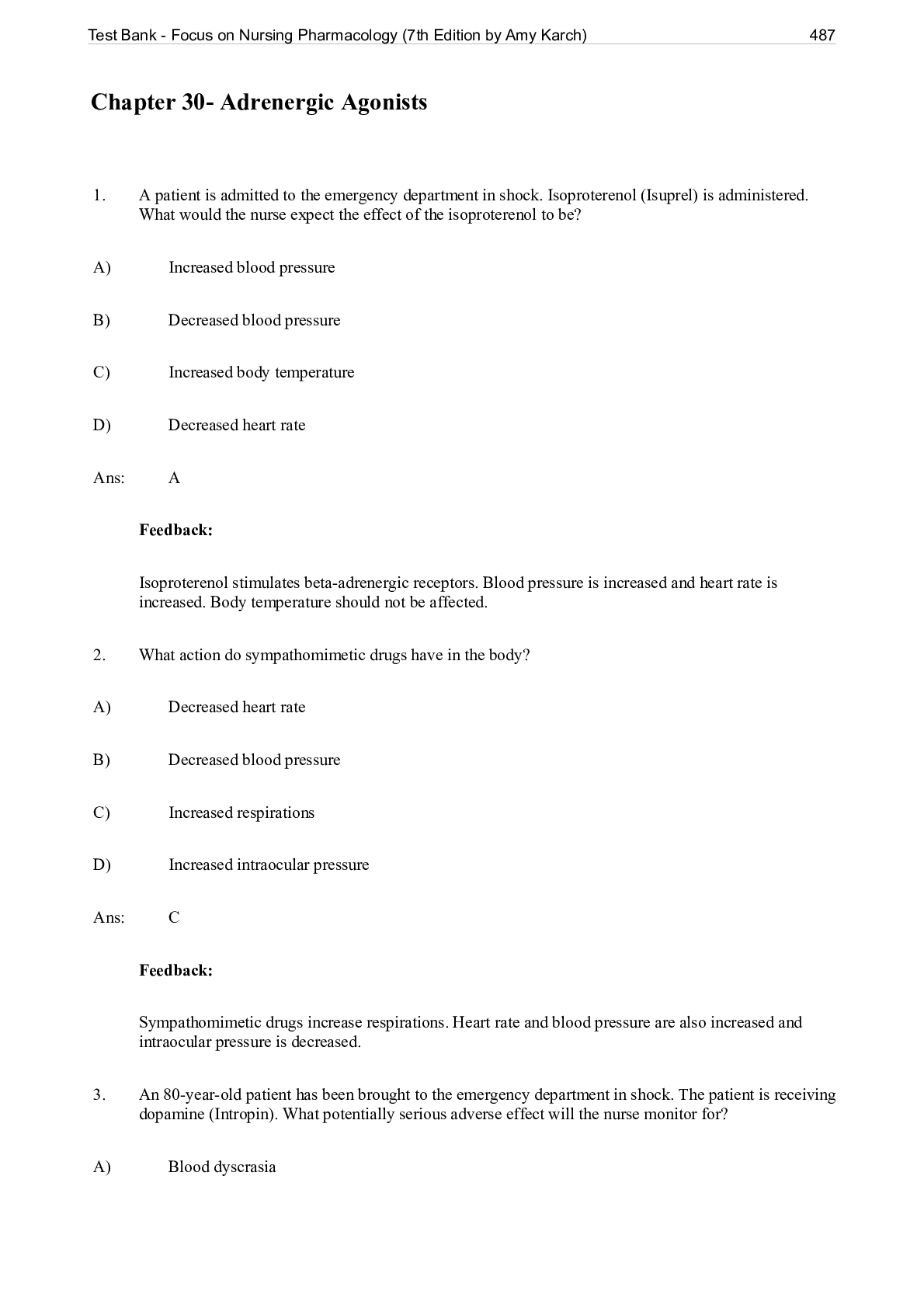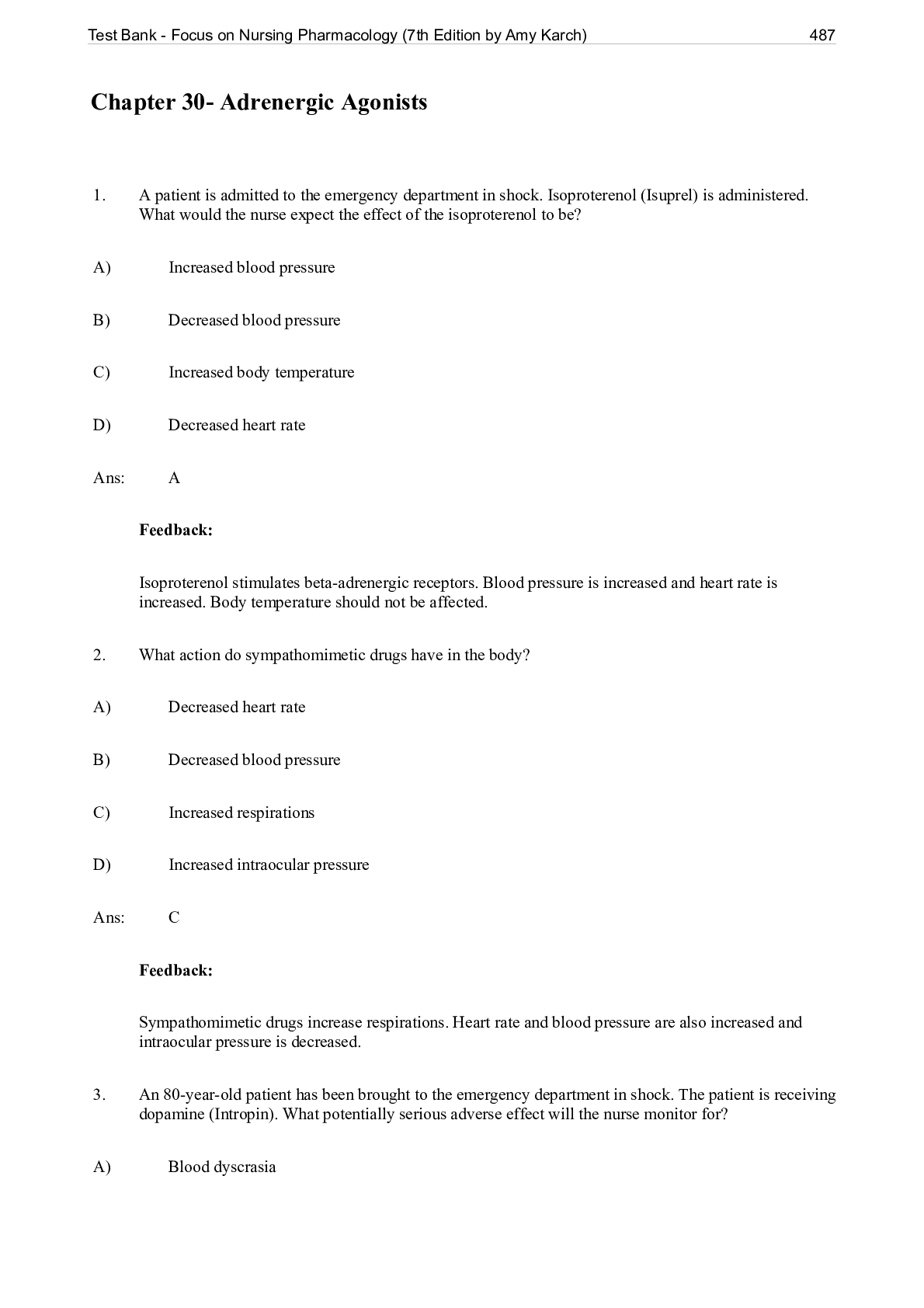Test Bank - Focus on Nursing Pharmacology (7th Edition by Amy Karch) Chapter 30- Adrenergic Agonists
Course
Subject
Chemistry
Category
Questions and Answers
Pages
16
Uploaded By
ATIPROS
Preview 4 out of 16 Pages


Download all 16 pages for $ 8.00
Reviews (0)
$8.00
